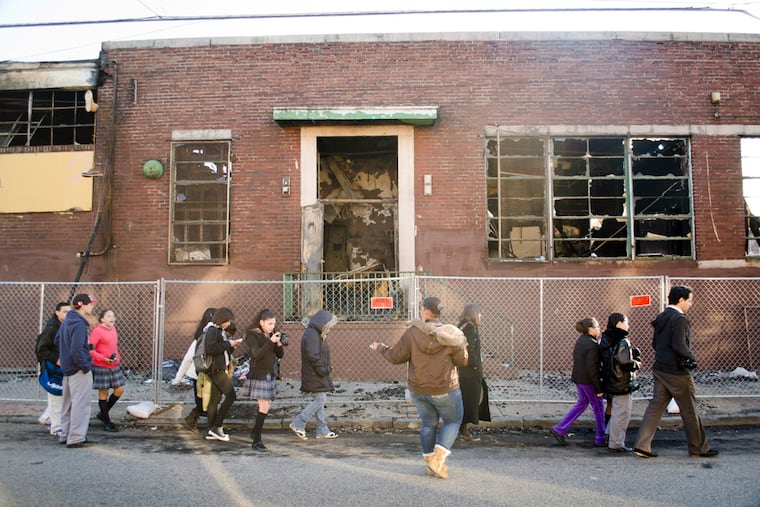Youths living in poverty are more likely to die by suicide, study suggests
Adolescents who grew up in the most impoverished counties are more than one-third more likely to die by suicide than adolescents in the least impoverished counties.

Youth suicide rates have soared in the last decade, sending researchers searching for explanations. A new study, presented at the American Academy of Pediatrics’ annual conference, suggests a correlation between growing up in poverty and dying by suicide.
According to a report released by the U.S. Centers for Disease Control and Prevention this month, the suicide rate for people ages 10 to 24 increased 56% between 2007 and 2016.
The new study found that children between ages 10 and 19 living in counties with the highest poverty levels are 37% more likely to die by suicide than those living in the least impoverished counties. The association is most pronounced for suicide by firearm, a method far more prominent among males.
Philadelphia is the nation’s poorest large city, with a poverty rate of 24.5% in 2018. Between 2015 and 2017, there were 31 suicides by people between ages 10 and 19 in Philadelphia. Overall, there was a 3% decrease in self-reported suicide attempts since 2007 by Philadelphia adolescents.
“We know that children who grow up in poverty are exposed to a host of factors like abuse and stress,” said Jennifer Hoffmann, a pediatric emergency medicine physician at the Ann and Robert H. Lurie Children’s Hospital of Chicago and the presenting author of the study. “We know that they can experience it at the family or community level, and that they face a number of challenges, like more adverse experiences, social isolation, hopelessness due to limited opportunities, and differences in access to high-quality mental health services.”
All of these things could play a role in shaping a child’s decision on suicide, Hoffmann said.
Although recent research shows that suicide rates for black adolescents are increasing, 69% of the 20,982 youths who died by suicide between 2007 and 2016 were white, 76% were male, and 85% were between ages 15 and 19.
One of the most alarming findings from the study was that the risk for adolescents who grew up in the most impoverished counties to die by suicide using a firearm was 1.87 times higher than those who grew up in the least impoverished counties.
Elizabeth Dowdell, a nursing professor at Villanova University who has studied adolescent suicide by firearm, said that the next step should be looking at how many of the firearms used were safely stored.
“We know from evidence looking at intimate partner violence that when there is a gun in the house, the partner has an increased rate of being killed,” Dowdell said. “We need to look at what kids have access to. Some parents will tell you, ‘I have a gun, but my kid doesn’t know where it is.’ But we know that the majority of kids do know where it is.”
» READ MORE: A loaded question: Should parents ask about guns before accepting a playdate?
She called the statistics on youth suicide “heartbreaking,” and said that it was important for researchers to take a closer look at what factors children consider when they make the decision to die by suicide. Dowdell said that providing and nurturing support systems in communities will help foster resilience in children and help them do better.
“We know that children need a safe person, someone who is not abusive toward them,” she said. “We know that schools with health-based clinics have better outcomes, and we can also share positive parenting skills with their parents. Children are dependent on their parents and support systems to learn resiliency that can minimize the impact of toxic stress.”
Hoffmann said that, in recent years, she’s seen more children visit the emergency room over suicide attempts. She said that connecting kids to the right resources is crucial.
“Parents should not be afraid to talk to their children about mental health or suicide,” Hoffmann said. “That can help them access resources before it’s too late.”
If you or someone you know is thinking of suicide, call the National Suicide Prevention Lifeline at 1-800-273-8255 or text TALK to the Crisis Text Line at 741741.